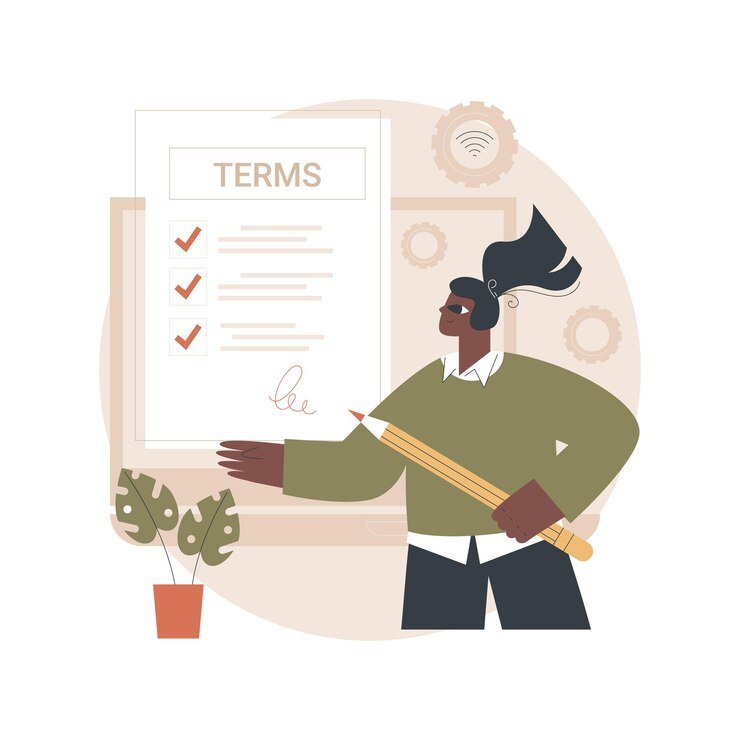
3.1 The Importance of Sales Talk.

If you thought that sales talk was pointless, then that depends on how you approach the subject and also what is being said.
There is no doubt that those that are actually pretty poor at sales will waste a lot of time and energy saying things that just make no sense whatsoever or are pointless. Now, that is hardly going to reflect well with potential buyers or clients which is why it is important for you to understand the role that sales talk plays to see how it is actually more important than you perhaps think.
It is important to remember that sales talk is the way in which you try to persuade the potential buyer to part with their money and to snap up either the product or service that you are promoting. Achieving this is not easy and that is why sales talk is often seen as being a real art form as not everybody has the gift of being able to say the correct things at the right time.
Sales talk is often structured in such a way so as the sales person is able to put forward a logical argument or explanation that will convince the other individual that they have the need and want to finalise the deal with you.
However, sales talk is not all about you just throwing out facts and figures as there is more to it than that. Instead, it should focus on dealing with all of the different objections of queries that they may have on the products on offer. It should focus on helping the potential buyer to see that they cannot do without whatever it is that you are selling and that the price and everything else connected to it pales into insignificance.
Sales talk may include demonstrations. It may include supplying them with evidence to support your argument and, as we just mentioned, to answer questions and do so by providing answers that they are able to understand. How you talk to people can also vary depending on the apparent knowledge that the buyer has mixed in with how difficult a product or service you are dealing with. As you can imagine, this does mean that you need to have a firm basic understanding of putting together a sales pitch, but we will cover that in a later module.
In other words, sales talk is the way in which you are able to talk to buyers and you can understand that without it there is going to be no chance of completing the sale and the entire industry collapses in an instant.Master the art of sales talk and you are going to find that your career is going to go from strength to strength.There is only one problem and that problem is connected to the use of jargon in the sales talk. Jargon is something that can change according to location and industry, but its use is something that you cannot avoid. However, as we will see in the next few sections it is something else that you are able to master in your development of your sales career.
3.2 The Role of Jargon.

So, what actually is the role of sales jargon?
To some, it is going to be nothing more than an annoyance because they see it as being a way of talking that some people understand and yet most people are left feeling confused. However, that is often down to a lack of understanding in general about jargon because when it is used correctly it can make a difference to how the sales pitch goes.
The one thing that you have to keep in mind is that there are some experts that claim you should never use jargon at any point as it undermines so much of your industry. This is a claim that is difficult to substantiate simply because of its widespread usage, so trying to avoid it is an impossible mission.
Furthermore, jargon is also used in the link between sales teams and marketers to allow both sides to be able to put across their ideas as to how something should proceed. Indeed, a number of people see jargon as being similar to an industry based type of slang although it does go further than that. Instead, analysts see jargon as being a form of language that uses what is perceived to be industry related, or product related, buzzwords or terms that is believed to have a profound effect on the person that hears them.
This does mean that every sales person is going to be aware of certain words or phrases that they are told must appear in their sales pitch and, as you can imagine, they will be designed to really boost your chances of completing the sale. However, it is not only the words themselves that are going to make a difference, but also the way in which they are said and where in the conversation they are used that can help.
In other words, you cannot simply throw in jargon and sales phrases in the hope that it sounds good and that you will come across as being knowledgeable because that is not enough and prospective buyers will see through it.
Instead, sales jargon should be used in a natural way with the emphasis being on the benefits of the product or service rather than trying to confuse the buyer by sounding far too professional to the extent that they simply do not understand what it is that you are trying to say.
A confused buyer is not going to spend money with you, so keep that in mind. That is not to say that jargon is not useful because that is certainly not the case. However, it is also worth noting that jargon can also be used to describe terms that you as the sales person should also be aware of. In this instance, it is used to simplify the entire sales process and to help keep you on track. That does mean that we need to look at the jargon from both sides to provide you with a clear understanding of the different terms that you should be looking out for.
3.3 The Key Terms Everybody Should be Aware of.

The problem with jargon, as we pointed out at the start of the module, is that its use is not only widespread, but also different terms can be used in various locations and it is not exactly universal.
However, as we said in the previous section, there are two different types of jargon with some related to how you talk to the potential buyers alongside jargon that may form part of your conversation with those in the same industry as well as other sales representatives.
It is important to note that you are not going to use every phrase or term in your sales approach and at the same time the way in which you put across your sales pitch is going to have a profound effect on the outcome. Later on, we will cover some terms that you should actually avoid in your sales pitch because they can turn people against working with you or buying your products. Prior to that, we do need to begin by looking at terms that you may begin to hear from your sales network or as part of your training. Remember, there are terms that can be industry specific although that does not apply in this instance.
1. Cold calling.
This is not only jargon, but it is a phrase that you will actually become very used to hearing as it refers to the art of going to potential buyers without any prior appointments. This means calling in on them without them being aware that it is going to happen and it is seen by many as being a tough way to sell.
2. Closed question.
Your sales trainer may refer to the concept of a closed question and what this refers to is you asking a prospective buyer a question where the answer is either just yes, or no. There is no room for discussion and it is seen as being a more forceful way of getting your point across.
3. Open question.
The opposite to a closed question is, of course, an open question and that is going to begin with words such as who, what, why, or how. The idea is that it prompts the buyer into revealing more information that you can then use to your advantage as part of your entire sales pitch.
4. Cross-selling.
The entire idea of cross-selling is that you are selling more than one product at a time in order to boost the end order. However, the products are best to be linked in some way.
5. Lead.
A lead is regarded as being an individual that may very well become a buyer in the future, but there is just a possibility at this moment and it is up to you to turn it into something more than only a possibility.
6. Pipeline.
This is something that you will hear mentioned although a number of people will get confused as to what it actually means. In this instance, it refers to a stream of prospects and potential sales that are at various stages of their development. Generally speaking, it runs from cold through to warm including those that may very well turn into closed deals.
7. Up-selling.
Up-selling is an art form in itself. It involves you attempting to sell another product that is at a higher price than one that they are perhaps interested in. However, you do need to be careful as to what you say as well as how it is said by judging the mood of the buyer at the time.
8. USP
USP stands for Unique Selling Point and it is the point where you learn what is the unique standpoint of your product or service that marks you out as being different from the others that are out there. Understanding what this is does make life easier for you when it comes to dealing with your potential buyers. If you do not know the USP, then closing a deal is going to be extremely difficult.
9. The buying process.
'The buying process' is a term that refers to where the potential buyer is on the cycle. It moves from awareness, where the lead is aware of your product or service, with it then moving onto evaluation where they try to determine if they want to buy and then the final stage is the actual decision.
10. Buying signal.
This piece of jargon is related to a method whereby you have to be able to identify those small signals that indicate the buyer is changing their mind and then allows the sales person to up their game in order to either deal with objections or to be able to close that sale.
11. Commission.
This jargon is something that all sales people have to be aware of because it relates to the percentage of money you receive for being able to close the deal. The percentage varies form company to company as well as products.
12. Forecasting.
Forecasting is something that is extremely important as it is linked to the idea of putting together a plan that can be applied for either that day, week, or even month. Furthermore, it is used to forecast, and for this read 'predict' the potential future sales by going on what the sales person has managed to achieve in the past.
13. Lifetime Value.
From a sales and business point of view, the lifetime value relates to the perceived income from a potential buyer over the lifetime of their association with both yourself and the company. This comes with its own calculation, but even though you may not be involved in that aspect it is still the case that it is useful to understand how the customer can benefit the company as well as benefiting them.
14. Loss leader.
A loss leader is a clever sales technique whereby the buyer is drawn into a relationship with a sales person through a product or service that the company is making a loss on. This may sound confusing, but the theory is that it will lead to them spending money elsewhere and that is where the profit is made. However, you do need to be aware of which products you can use in this manner as part of your sales approach.
15. Objection.
An objection in this sense is just another way of stating a rejection or question from the potential buyer that is a negative thing for your the sales person. The ability to identify this as early as possible does then lead to it being easier for you to correct the buyer or to change your sales approach in order to counteract their negative opinions with this boosting your ability to turn them into a closed deal.
There are a number of other terms and one thing that we recommend is that you sit down with your company or sales manager and attempt to learn as much of the jargon as possible at the earliest opportunity. Missing out on this will also make your life harder and sales is tough enough without you doing anything to make matters worse.
FACT
Only 13% of customers believe a sales person can understand their needs..
Source: newvoicemedia.com
3.4 Terms to Avoid Using.

Another problem with jargon is that its usefulness can ebb and flow throughout time and that can be quite difficult for some people to keep up to date with.
However, at this moment in time, and remembering that phrases can once again come back into fashion, there are a number of terms that you should avoid using for fear of it irritating potential
customers.
1. Exceed expectations.
This phrase should be avoided as it is seen by customers as the sales person trying to tell them that expectation level rather than allowing them to find it out for themselves.
2. Customer focused.
This is one of those phrases that is actually redundant because every company has to actually be customer focused as that is the main reason for their entire existence. Never say it to potential customers even though you may mean that you provide brilliant customer service. Instead, explain it better to them and you will have a more positive response.
3. Unique.
It may seem strange to select just a single word, but often a product or service is not actually unique, although there are clearly exceptions to this rule. Customers are not interested if a product is unique, but rather they want to know if it will meet their need or better their lives in some way.
4. Value added.
The problem with this particular term is that it sounds as if something extra has been added on whereas it will tend to just refer to the deal that everybody gets. There is nothing extra added to it at all, so this phrase is slightly misleading in its approach.
5. Think outside the box.
You may think that this is some kind of buzz term, but this is a prime example of how certain jargon can fall victim of just being used too much.
6. Full-service.
Even though the idea of offering a full-service product sounds impressive, it is actually something that is difficult to do. The problem is that it is impossible to do this on a regular basis and if something is difficult to do, then you need to avoid using it as jargon.
7. Give 110%.
People use this phrase in order to make it seem as if they will go above and beyond the call of duty, but that should be a given and should not be regarded as being anything special. Instead, show the buyer the actions of putting in the extra effort rather than just talking about it as that will help you more.